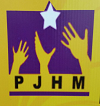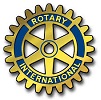The CENCOT centre for Education is a day care school which was formed in 1998, for children who are born with “AUSTISM” problems ( a mental condition characterised by great difficulty in communicating with others and in using language and abstract concepts and Learning Difficulties, slow learner, cerebral palsy, Dyslexic, Dyscalculis, Brain Injured, Down Syndrome, orthopedically impaired, speech and language disorder / delayed.

About Autism
Autism is a life long developmental disability that effects the social interaction, communication and imagination abilities of those with the syndrome.
If effects four times more males then females, occurs with equal incidence across all geographical boundaries (nearly 30 in 10,000), appears simultaneously with mental retardation in 70% of cases and has related medical difficulties (a third have epilepsy). The combination of impairments with social skills, communicative abilities (50% + have no speech), social imagination, learning difficulties (mental retardation) and medical issues present major challenges to the person, family and care giver.
CAUSES OF LEARNING DIFFICULTIES
- SMALL BRAIN (MICROCEPHALY)
- CHROMSOME ABNORMALITY
- MALNUTRITION
- CRETINISM (HYPO THYROIDISM)
- INFECTIONS DISEASE
- MENINGITIS (BRAIN INFECTION)
- HYDROCEPHALUS (LARGE HEAD CONTAINING FLUID)
- HEAD INJURIES
- COMPLICATIONS AT BIRTH
- MISHANDLING AT BIRTH
- MATERNAL AGE * 20 –1 : 2000, 35 – 1 : 750, 45 –1 : 300 AND > 45 – 1 : 60
- ALCOHOL AND DRUGS
- X-RAY
- HAZARDOUS SUBSTANCES
- CHILD ABUSE
TYPES OF LEARNING DIFFICULTY
- DOWN SYNDROME
- COCHAIN SYNDROME
- X-FRAGILE
- RATT – SYNDROME
- FETAL ALCOHOL AYNDROME
- ANGLEMEN SYNDROME
- HYDROCEPHALUS
- MICROEPHALUS
- HYPERACTIVE / ATTENTION DEFICIT DISORDER (ADD)
- AUTISM
- CEREBRAL PALSY ( SPASTICITY )
- MINIMAL BRAIN DAMAGE ( MBO )
- ASPERGER SYNDROME
DEGREE OF LEARNING DIFFICULTY
- MILD (I :Q 50 – 70)
- MODERATE (I : Q 34 – 49 )
- SEVERE (I : Q 20 – 34 )
- PROFOUND (I : Q 0 – 19)
MEASURES AGAINST LEARNING DIFFICULTY
- Prevention / Intervention
- Education
- Integration
- Inclusion
- Therapy
- Training
- Family Support
- Advocacy, Legal Support
- Public Awareness
- Counselling and Consultancy Services



